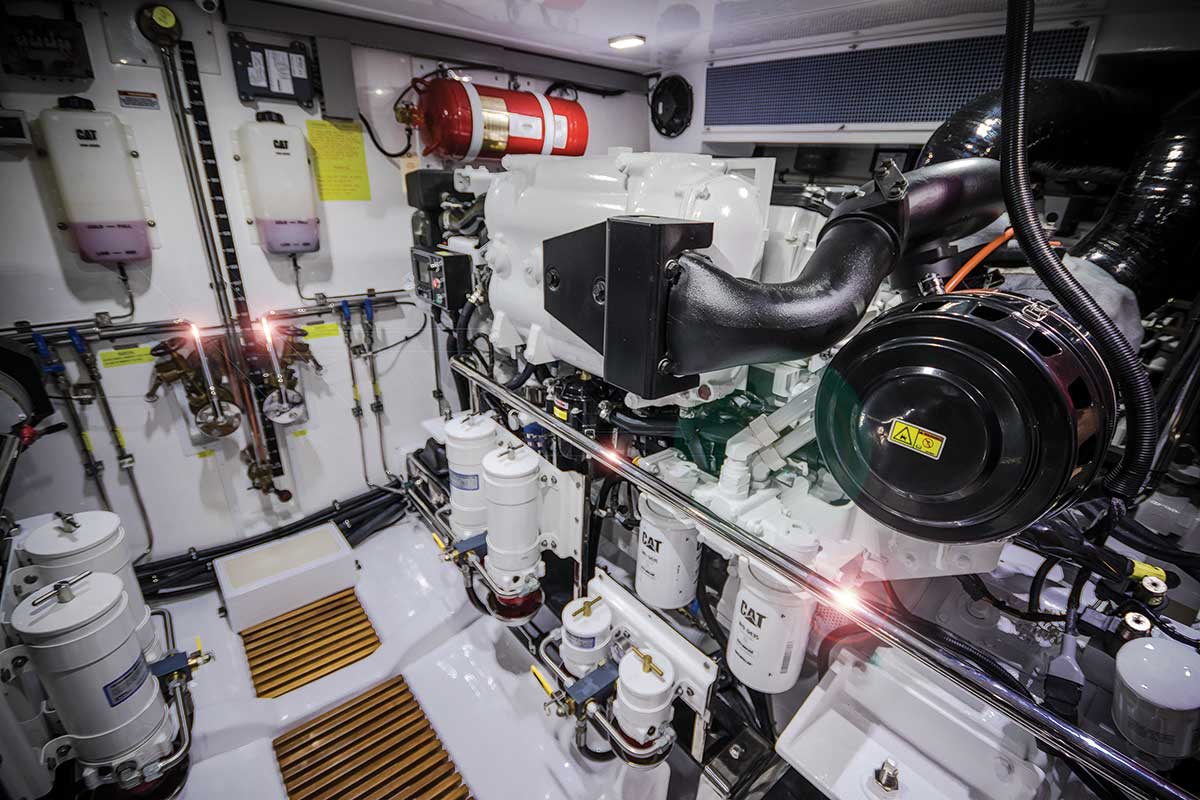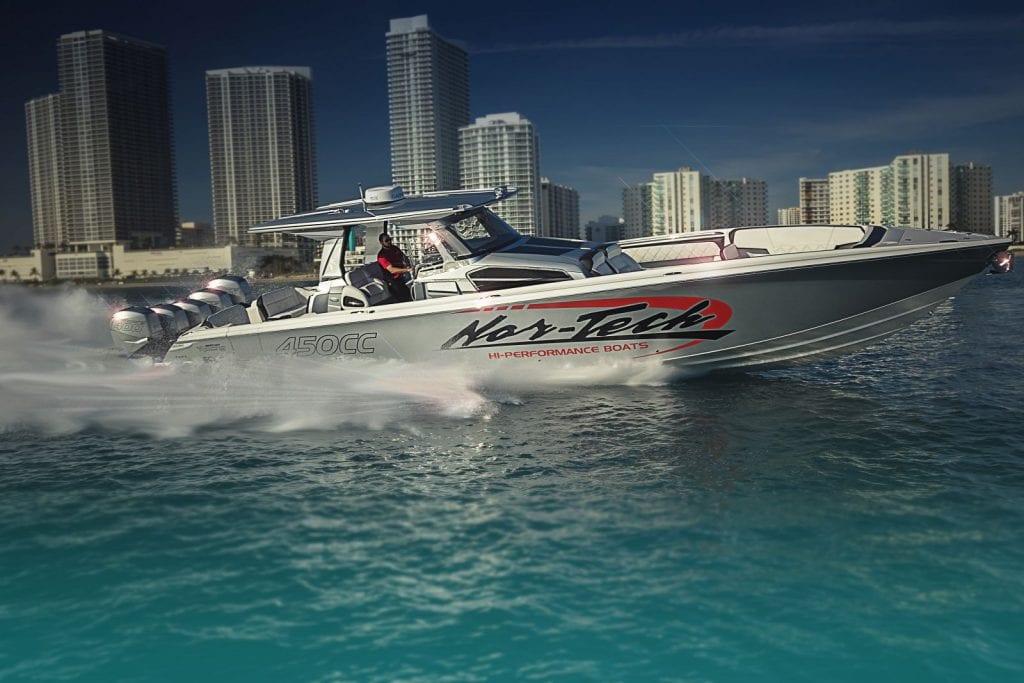Spring cleaning your engine room has long-term benefits.
A dirty engine room is like dirty fingernails; it says a lot about your boat’s overall cleanliness. The accumulation of dust, sea spray, oil, and other fluids in the engine room can affect a boat’s value as well as the boat’s seaworthiness. The boat may look great outside, but it is sick inside and may be dying. “A boat that’s a mess down below can be difficult to repair when there is a problem,” explains Issy Perera, owner of Apex Marine in Miami. “That’s why a clean engine room and pre-flight check at the dock is so critical. Keeping a tidy engine room offers three advantages: It preserves the value of your boat, prevents issues before they start and helps you spot bigger problems faster.”
With some vigorous spring cleaning, boat owners can separate engine room clean-up into three areas:
• Mechanical issues associated with the engine
• Electrical issues with batteries and connections
• Auxiliary systems such as seacocks, sea strainers and watermakers
When it’s clean, problems are seen.
Perera puts down clean, oil-absorbent pads in the engine room so that he can see immediately if there are drips or leaks. During his frequent checks of the engine room he scans for dust that may be a sign of a worn or slipping belt, or if there’s smoke or residue from a leaking exhaust hose.
Anything out of place—loose clamps, wires or hoses—is obviously a sign that something is amiss and needs to be checked out. “There’s an awful lot of stuff in play in the engine room,” says Perera, who runs his 51-foot sportfishing boat to The Bahamas with friends and family. “Once you make a habit of getting down there and cleaning every time you go out, you’ll begin to notice things. You become very in tune with your boat and can also perform vital fluid maintenance.”
Making sure oil is at the proper level and changing it regularly benefits your diesel engine in innumerable ways. While a diesel engine may run at low rpms, it’s still working hard whenever it is running, and the engine oil does more than lubricate moving parts and reduce friction. Oil also keeps pistons and cylinders cool, and protects the walls, valves and turbochargers by acting as a sealant to stop corrosion.
Whether or not to change your own engine oil depends on your mechanical skill level. Most new boats have oil-changing pumps that make it easy to get the oil out, but older boats don’t have such conveniences. You’ve got to get down and dirty to find the oil pan and drain the oil. The bottom line is changing the oil can be a big job that’s not worth the hassle. However, it’s a great idea to know how to change filters and add oil when needed.
Eye on electricity
“Some people will start to spray water all over the engine room, and that’s when things can really get screwed up,” warns Perera. “You have to know what you can and cannot spray. That’s why it can be a benefit for some boat owners to have a qualified marine professional do the maintenance on their boat so they can just turn the key and go.”
Many diesel engines use sacrificial anodes known as “pencil zincs” to counter galvanic corrosion. It’s important to check the zincs often and replace them when they are worn out. “If you let those zincs expire you can have major problems,” Perera cautions. “I’ve seen them wear out after three or four months. Now, they don’t use zincs on all brands, so boat owners need to check their book and find out and then know how to change them when needed.”
Many of today’s diesel engines use covered plugs and connectors for the electrical system, but if you do have exposed connections, there are ways to ward off corrosion. Boeshield T-9 is a spray-on product that creates a film over the exposed connection and protects it from the saltwater environment.
Focus on the fluids
Many boat owners don’t give thru-hulls and seacocks much thought regarding maintenance. They might think of thru-hulls, made of bronze or plastic, as finished-off holes in the boat, and seacocks, also available in bronze or plastic, as simply valves that can be opened or closed. However, when there’s a serious failure of a below-the-waterline thru-hull and seacock, the boat can sink or an engine can burn up when deprived of cooling intake water.
Thru-hull fittings and the seacocks attached to them function as gatekeepers, allowing water to pass into and out of the boat. Thru-hulls are both above the waterline for bilge and A/C water discharge, and below the waterline in combination with seacocks for raw-water intakes for engines, generators, A/C systems, washdown pumps, and more.
When doing maintenance, test bronze thru-hulls with a pocketknife by poking into the flange. If you see bright shiny bronze you are okay, but if you uncover pink, flaky material, it’s time to replace it. Likewise, plastic thru-hulls can crack and leak. Thru-hulls can be fouled by barnacles, and you want to check the seacocks to make sure they open and close smoothly and that there are no leaks.
One cool tool
Finally, Perera recommends every cruising boat owner have a wet vacuum that’s always at the ready. Wet vacs allow for the fast removal of accumulated water, which helps prevent bacterial growth as well as keeping the area clean. “We can help customers clean up their engine rooms, but sometimes it’s a do-it-yourself job and that’s where you have to have the wet vac,” Perera says. “You don’t want standing water or fluids in your boat, and again, any fluid is a sign that something is wrong. Fix the problem, eliminate the fluids, and you’re going to be a much happier boat owner.”
— By Doug Thompson, Southern Boating Magazine
January 2017












